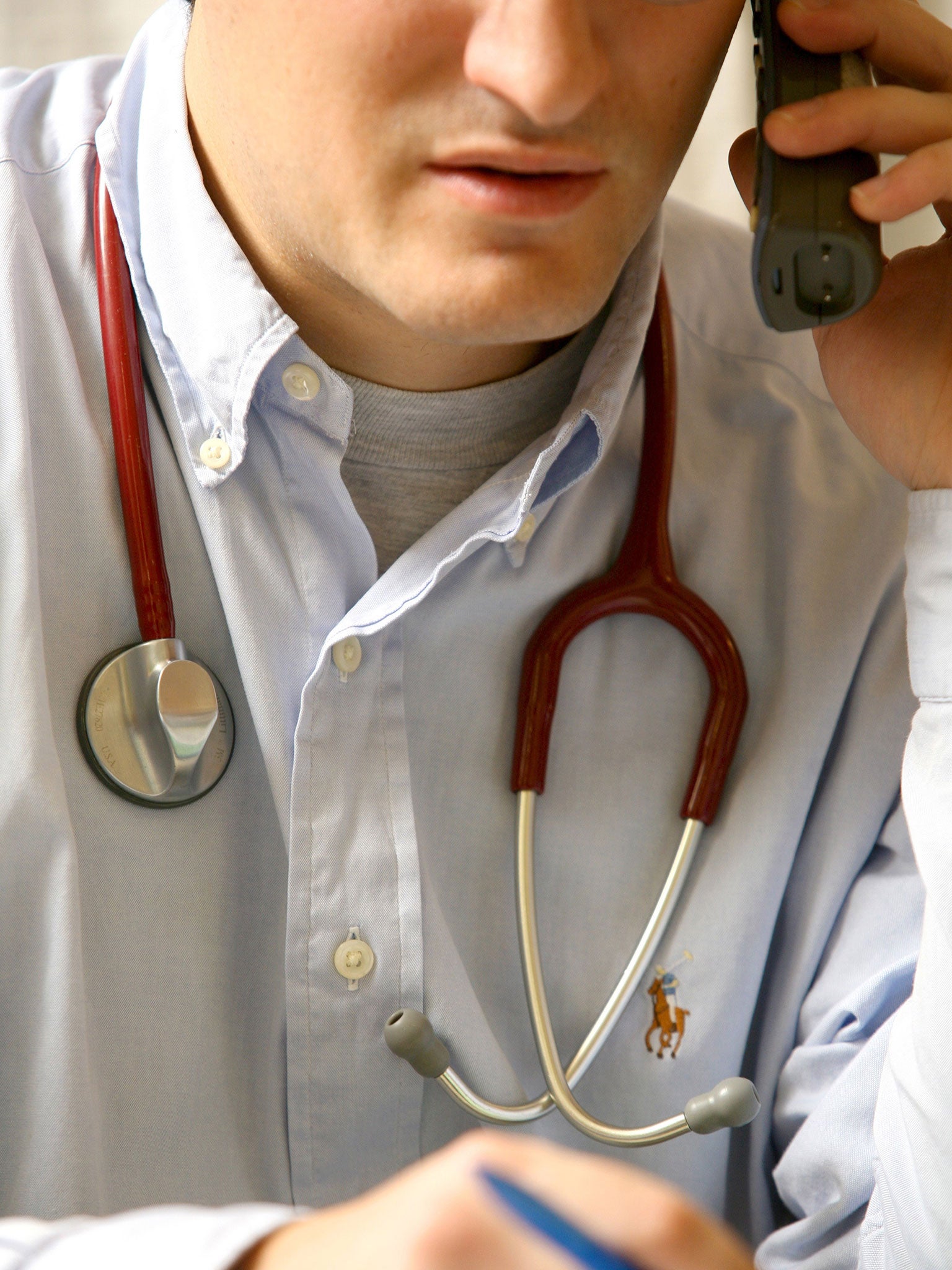Telephone appointments ‘no benefit’ to busy GPs, claims study
Patients assessed over the phone are more likely to require follow-up care than those seen face to face

Your support helps us to tell the story
From reproductive rights to climate change to Big Tech, The Independent is on the ground when the story is developing. Whether it's investigating the financials of Elon Musk's pro-Trump PAC or producing our latest documentary, 'The A Word', which shines a light on the American women fighting for reproductive rights, we know how important it is to parse out the facts from the messaging.
At such a critical moment in US history, we need reporters on the ground. Your donation allows us to keep sending journalists to speak to both sides of the story.
The Independent is trusted by Americans across the entire political spectrum. And unlike many other quality news outlets, we choose not to lock Americans out of our reporting and analysis with paywalls. We believe quality journalism should be available to everyone, paid for by those who can afford it.
Your support makes all the difference.GP surgeries that let patients talk to a doctor on the phone are not saving money or reducing their workload, a major study has found.
Research has shown that people who are assessed over the phone are also more likely to require follow-up care than those seen face to face.
Telephone triage is growing in popularity as GPs, under pressure from rising demand, seek to filter out patients with less serious needs.
However, the first major analysis of the new practise suggests that, far from improving efficiency, telephone triage offers no cost or time benefit, and only serves to “redistribute” the workload or save up problems for later.
The findings, published in The Lancet medical journal today and based on a trial involving more than 20,000 patients at 42 GP surgeries in England, will come as a blow for the Government, which has pledged to improve GP access with an expanded role for “remote” consultations over the phone and even via Skype. A trial including more than 1,000 practices has already extended the services to 7.5 million people.
Join our commenting forum
Join thought-provoking conversations, follow other Independent readers and see their replies
Comments